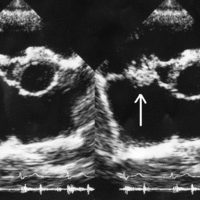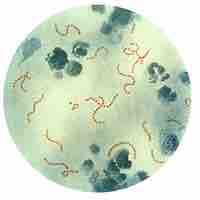Section 8
Bacterial Diseases of the Cardiovascular and Lymphatic Systems
By Boundless

Septic shock occurs when a body's response to an infection (sepsis) leads to life-threatening low blood pressure.

Bacterial endocarditis is an infection of the inner surface of the heart or heart valves caused by the presence of bacteria in the blood.

Rheumatic fever is an inflammatory disease that can develop as a complication of inadequately treated strep throat.

Tularemia is an infection caused by the Gram-negative bacteria Francisella tularensis.

Brucellosis is an infectious disease that occurs from contact with animals carrying Brucella bacteria.
Anthrax is a rare, infectious disease caused by Bacillus anthracis that can spread from animals to humans.

Gangrene is a serious and potentially life-threatening condition that arises when a considerable mass of body tissue dies.